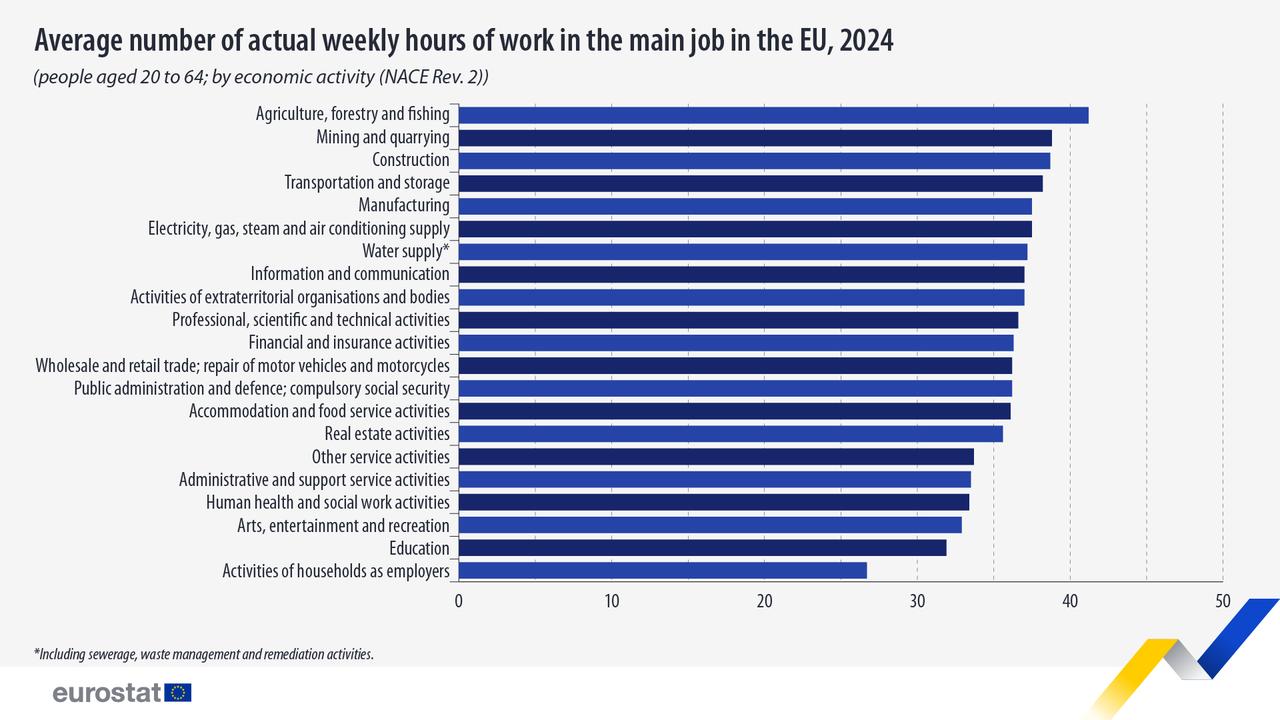
In a clear divergence from the European trend toward shorter workweeks, Türkiye has emerged as the country with the longest actual working hours in Europe, averaging 43.1 hours per week for individuals aged 20–64 in their main job, according to Eurostat.
This figure significantly exceeds the European Union average of 36.0 hours and places Türkiye well ahead of Greece (39.8), Bulgaria (39), and Poland (38.9), according to 2024 data.
In contrast, some Western European countries reported significantly lower figures. The Netherlands recorded the shortest actual working week at 32.1 hours, followed by Denmark, Germany and Austria with 33.9 hours each.
Among Türkiye's immediate neighbors, Greece reported 39.8 hours, Bulgaria 39, and Romania 38.8—making them among the highest within the EU.

In 2024, the longest working weeks across the EU were recorded in agriculture, forestry and fishing (41.2 hours), mining and quarrying (38.8), and construction (38.7). On the other end of the spectrum, activities such as household employment (26.7), education (31.9), and arts, entertainment and recreation (32.9) featured the shortest working weeks.

Türkiye’s average—43.1 hours—exceeds even the highest sectoral average within the EU, indicating a broader national trend that goes beyond individual industries. This suggests that the working hour intensity in Türkiye spans multiple sectors rather than being concentrated in specific areas.
Across the EU, governments and firms are experimenting with shorter workweeks to improve well-being and productivity, with four-day week pilots gaining traction in Germany, Belgium, and Spain. Between 2014 and 2024, the EU’s overall average of actual weekly working hours declined from 37.0 to 36.0. In contrast, Türkiye’s current figure stands out not only in absolute terms but also in relation to this ongoing trend of reduced working time across much of the continent.
Meanwhile, Türkiye has yet to make any notable policy moves in this direction. Instead, structural inflation and wage stagnation continue to drive many Turkish workers to take on multiple roles or work additional hours to maintain basic living standards.